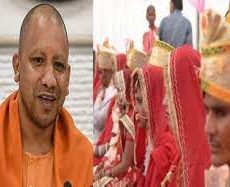Among scholars as well as lay people discourse on women’s place in the family and society and opinions on women’s issues are inspiring a sense of rediscovering the mysterious inner and outer workings of woman’s power and energy. Female energy has always perplexed people. For no lesser a person than Freud, a woman has been nothing short of mystery. He says: “Despite my thirty years of research into the feminine soul, I have not been able to answer…the great question that has never been answered: what does a woman want?”
Throughout the centuries, however, woman’s strength and qualities instead of being appreciated for itself have been largely ignored, taken for granted, or outright exploited to the benefit of man. Despite much advocacy of women’s rights, women have not yet achieved the power to influence and control their own course of life. Their efforts to overcome impediments to freedom and equality have made very little inroads in raising the human consciousness worldwide making their vision even more elusive. Happyho also provide best tarot reading services in Noida and Delhi NCR India area.
The current century has the potential of women achieving equality, but only if they recognize the significance of what Naomi Wolf calls – the “historical self-awareness”. Women are today at a turning point, what historians call, “an open moment”. A lot more women are shining at professional levels of great diversity – from Aerospace to Business, Corporate Leadership to Politics, Sports to Science and Technology. Nevertheless, what would really determine the outcome of their marching forward is the level of historical awareness without ever losing the sight of it.
The word “feminism” is often seen as taboo; and yet, does it really matter if one calls oneself as “feminist” if one is actually living feminism? Feminism need not remain just a label; it must become a way of life. This, however, is possible if women do not become indifferent to their role and responsibility towards history. Dissent and disagreement shown by women across the whole spectrum of human life need not be a reactionary phenomenon, but rather a healthy sign of diversity and strength.
Shirley Mac Lane said at the 1992 Ecological Global Forum at Rio de Janeiro that, the approach to our environmental/ecological problems is left-brained, it is dominated by male mind. The male mind is based on conquest, achievement – at any cost; success at any rate. Ms. Mac Lane, instead called for more of the “feminine” spirit”, that is, intuition, patience, foresight, caring and nurturing. She asked to be involved emotionally without embarrassment. She said: “We shouldn’t have to apologize for feminine feelings. It is time for these feelings to be recognized”. She spoke of feminine crisis and the need to “make the jail break from the male, left-brained attitude”.
It is evident that today both feminine crisis and the ecological crisis have coincided – globally – and women now have a responsibility to save the planet Earth. Women can understand and relate with the problems of the Mother Earth better because a woman carries qualities of a mother. She can easily resonate with the pain of Mother Earth than anyone else can.
The Chinese mystic, Lao Tzu, has given a remarkable insight into Ecology. He says: “The nature of existence, the environment around us is more like a female”. Lao Tzu is not saying the existence is “female”. He is not giving a slogan for any particular ideological movement. He is actually pointing at a certain quality; he calls it the “creative principle” – like Earth, a woman is a creative principle, the most marvelous being in the universe.
A more realistic and a sustainable vision related to women and their contribution in the evolution of human consciousness can find its ideal manifestation in recognizing the natural kinship between feminism, ecology, and the inner transformation. Supported by modern science, such philosophical and spiritual framework is rooted in the perception where meditative awareness, healing power, and ecological responsibility come into a dynamic interplay transforming individual as well as collective consciousness.
Despite the much talked about “women’s liberation,” the fact of the matter is that women are seriously and systematically discriminated against almost universally. The examples of such discrimination abound in terms of education, employment, salary, opportunity for higher positions but especially in terms of extending simple courtesy and respect.
It is ironic though, that, since infancy, along with female the male also depends for protection and nourishment upon one woman or another. Ordinary common sense would, therefore, dictate that such an important person be given the due respect, attention and a special place in the overall scheme of life. But that does not seem to be the case. What does emerge, however, is ambivalence on the part of man in his attitude and demeanor toward woman.
The strategy of man has been to keep her stuck in the image created by him for his own vested interest – whether as a grihalaxmi or as his property. First, man convinced her into seeing herself within this framework, and subsequently, the woman got so conditioned to seeing herself accordingly that she couldn’t perceive herself differently. She complained, she cried, she begged for relief but never dared to get out of the imprisonment of her image. So, first the man was conditioned to perceive women in a certain way, and then the woman too got conditioned to perceive her on the same lines and accepted it without any hope for a better life.
Concerned with women’s plight several reformers in India, for example, came forward, but they came with the assumption of helping the “weaker” gender. Whether it is an issue of child marriage, widow re-marriage, or any other form causing women to suffer, they sincerely tried to help. Their help, however, was extended within the same parameters of religion, caste, morality, ethics, social norm – they gave protection and shelter to the suffering women but not freedom from suffering.
Although the rise of the modern feminist movement in the 1960s and 1970s has broken some of the sociological and psychological barriers toward women in some countries, the impact of the movement appears to be losing its power when in its zealousness women seem to want to be equal and similar to men.
The contemporary visionary and prolific author, Osho, totally disagrees with this kind of feminism. Women, in his vision, are neither inferior to men nor similar — they are different. Even though in his progressive view he is all for woman’s freedom and equal status, however, he also makes it clear that women have their own uniqueness, their own place, their individuality. He says categorically, “Drop the idea of the women’s liberation movement, because they are also putting nonsense into your minds. Their nonsense is that they are trying to prove that men and women are equal. They are not — and when I say they are not, I don’t mean that someone is superior and someone is inferior. I mean that they are unique.” (Sermons in Stones, Ch.17, Ch. Title: The Poetry of the Feminine)
According to Osho, lesser the polarity between men and women, greater will be the possibility for a creative tension. They need to be different so that they can be complementary. Men and women are equal, but not similar — they are different. They are unique in their own ways. Both need equal opportunity — an opportunity to grow. Women’s uniqueness must be recognized, respected, supported. A woman must have equal opportunity, but not the opportunity to imitate man’s quality — rather opportunity to develop her own qualities. If women don’t realize this then they will be either slaves or helpless followers.
Although over a period of time women have attained education, more economic and political freedom, nevertheless, a woman’s existential problem is still the same: she is still not free from within — free from fear and insecurity, free from jealousy and anxiety. Osho has given this inner freedom by introducing her to meditation, through the science and technology of inner transformation. Meditation gives her inner strength. Meditation makes her free from her conditionings, social and psychological trappings, low self-esteem and lack of self-confidence.
Osho is essentially provoking women to tap their inherent potential. His emphasis is equally on women’s as well as men’s liberation. He would like to see them not as co-dependents but as co-creators. The redefining of feminism, therefore, depends not only on women rediscovering themselves; men will also need to redefine their role and restructure their attitude vis a vis women.
The feminine qualities of caring, nurturing, empathy and creativity are urgently needed today to save humanity from the brink of self destruction. Mesmerized by the material greed, the male mind will have to be encouraged instead to focus on feminine perception of seeing relationships rather than just seeing things. We need women showing their historical awareness in spiritualizing humans by, what Osho says: liberating both male and female from their age old conditionings.
“The freedom of women is going to be the freedom of men too. The day the woman is accepted as equal, given equal opportunity to grow, man will find himself suddenly free from the bitchiness that he used to feel from the woman. It is time….We can create a world together, with men and women sharing their insights, their visions, their dreams. Because they are different, their dreams are different; their contributions to the society will be different. And if a society can be created in which men and women have participated equally, that will be for the first time the richest society in the world.”
(Sermons in Stones, Ch.5, Ch. Title: Laughter – As sacred as Prayer)
– Satya Vedant (Dr. Vasant Joshi)





